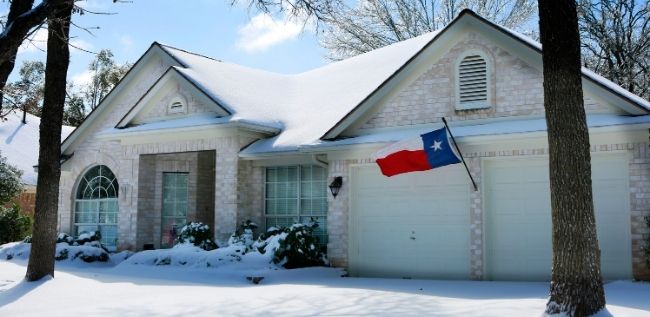In February, historic snowfall and cold temperatures in Texas crippled the state’s power grid, knocking out power and heat to more than 4 million people. Many of you reached out to us to learn more about what happened and whether or not something like this could happen in Michigan.
What Happened?
Essentially, Texas was caught off guard by record-setting cold weather. Its power grid is built for peak electrical usage in the summer months, so nuclear and coal plants were shut down for regular maintenance at the time the storm struck. In addition, most homes in Texas aren’t built with the same weatherization standards as homes in colder climates. Keeping those Texas homes warm takes more energy.
Cold weather is expected in Michigan, and our electric system can handle extreme weather temperatures. Michigan winterizes critical infrastructure components like gas pipelines and wind turbines so they don’t freeze up. These preventative measures cost more to do, but they are necessary to ensure our system will be operable in our cold climate.
How is Michigan’s Power Grid Different?
Diversity
Texas has a more isolated power grid, with limited ability to get electricity from other states. Michigan uses a much more diverse grid that is shared with 15 states. An unseasonably hot or cold weather event typically doesn’t span 15 states, so Michigan is able to receive generation from another region when this happens.
Deregulation
Large parts of the Texas power grid are deregulated. That means no one company owns all the power plants, transmission lines and distribution networks, and 60% of Texans choose between dozens of power providers. While this competitive market can help to keep costs low, it also disincentivizes investments in electric infrastructure and generating capacity. In Michigan, there is very limited deregulation that allows a small number of commercial and industrial electric consumers to choose their supplier.
Grid Capacity
Michigan utilities are required to demonstrate they have a certain amount of capacity (extra power on hand to prepare for a cold or hot spell). We pay a little more for it, but it’s like insurance. You can go without it, or you can choose to get it. Chances are at some point you will have to cash that policy in. Michigan has a policy in place; Texas didn’t.
Is a Similar Event Likely to Happen in Michigan?
Our grid is weather-hardened and robust. But it is ultimately a matter of math—we must continue to make sure that we have more electricity supply than we do demand. Michigan has retired many of its older power plants over the past five years, but not all of that generating capacity has been replaced. This has put our state at greater risk of reaching our maximum generating capacity. That’s why we must continue to advocate to ensure that Michigan continues to build new electric generation facilities to meet current and future energy needs.
To learn more, listen to Co-op Energy Talk on our website or wherever you listen to podcast!



Leave A Comment